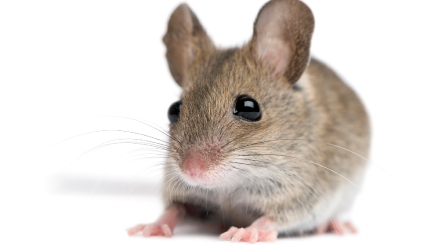Effect of Vaccines Against Viruses
 Scientists have discovered a compound that greatly boosts the effect of vaccines against viruses like flu, HIV and herpes in mice.
Scientists have discovered a compound that greatly boosts the effect of vaccines against viruses like flu, HIV and herpes in mice.
An ‘adjuvant’ is a substance added to a vaccine to enhance the immune response and offer better protection against infection. There is a need to develop new adjuvants to get the most appropriate immune response from vaccines.
A type of polymer called polyethyleneimine (PEI) is a potent adjuvant for test vaccines against HIV, flu and herpes when given in mice. PEI, a standard polymer often used in genetic and cell biology, has strong adjuvant activity.
PEI is a potent adjuvant in rabbits, showing the effect is not just specific to mice and could be general.
Mice given a single dose of a flu vaccine including PEI via a nasal droplet were completely protected against a lethal dose of flu. This was a marked improvement over mice given the flu vaccine without an adjuvant or in formulations with other adjuvants.
Gaining complete protection against flu from just one immunisation is pretty unheard of, even in a study in mice. This gives confidence that PEI has the potential to be a potent adjuvant for vaccines against viruses like flu or HIV, though there are many steps ahead, if it is ever to be used in humans.
There aren’t any effective vaccines against HIV and herpes as yet, and the flu vaccine needs reformulating each year and doesn’t offer complete protection to everyone who receives it. Finding better adjuvants could help in developing more effective vaccines against these diseases.
Most vaccines include an adjuvant. The main ingredient of the vaccine — whether it is a dead or disabled pathogen, or just a part of the virus or bacteria causing the disease — primes the body’s immune system so it knows what to attack in case of infection. But the adjuvant is needed as well to stimulate this process.
The most common adjuvant by far is alum, an aluminium-containing compound that has been given in many different vaccines worldwide for decades. However, alum is not the most potent adjuvant for many vaccine designs.
Another potential advantage of PEI is that it works well as an adjuvant for ‘mucosal vaccines’. When included in a vaccine with a protein from HIV, flu or herpes virus, mice subsequently mounted a strong immune response against that virus. The immune response was stronger than with other adjuvants that are currently being investigated.
It’s just a vision for the future at the moment, but this promising adjuvant suggests it is a vision that is at least possible.

Comments are closed.